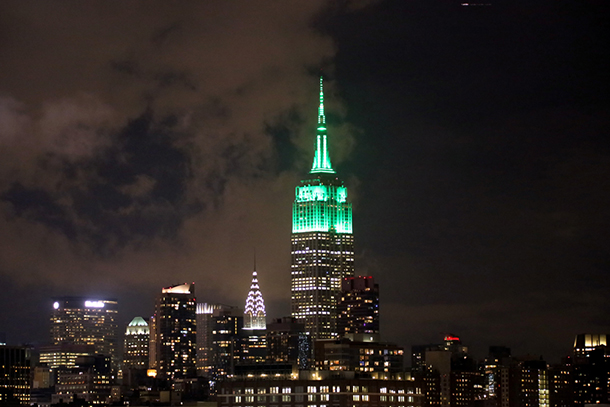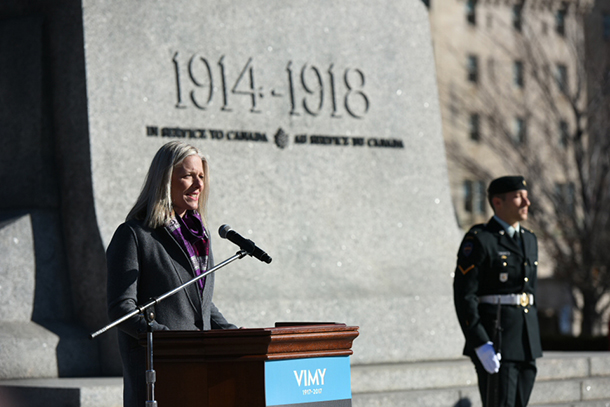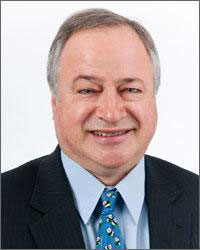Climate Week 2017
Air Date: Week of September 22, 2017

For the past four years, the empire state building has been illuminated in green in honor of Climate Week NYC. (Photo: Arturo Partivilla II, Flickr CC BY 2.0)
Against a backdrop of massive hurricanes that caused devastation in the Caribbean and the south eastern US, as well as destructive floods in Asia, diplomats, business, state and local leaders, advocates and climate thinkers of all kinds gathered at alongside the opening session of the UN General Assembly in UN New York for Climate Week 2017. Alden Meyer from the Union of Concerned Scientists discusses with host Steve Curwood how these leaders reacted to the extreme weather events, and plan to further fight climate disruption.
Transcript
CURWOOD: It’s Living on Earth, I’m Steve Curwood.
When the world’s leaders gather in New York for the annual fall meeting of the UN General Assembly, there is also a series of meetings called Climate Week that allows all those government, business and NGO leaders to discuss global climate solutions. This year, those consultations have an added urgency. Not only has President Donald Trump said he’s pulling the US out of the UN Paris Climate Agreement, but an unprecedented succession of huge and deadly hurricanes has also been battering the US and the Caribbean.
Alden Meyer, a climate diplomacy expert with the Union of Concerned Scientists, came to New York City for Climate week, and joins us now. Welcome back to Living on Earth, Alden.
MEYER: Good to be with you again, Steve.
CURWOOD: Tell me, what's the mood been like at the climate week there in New York?
MEYER: Well it's, it's a strange mix. You have event after event where cities and states and companies are making commitments to climate action. There was the launch of the EV100 Alliance, where a coalition of global companies, including Unilever, Ikea, D.H.L., and others have committed to try to replace their fleets with electric vehicles, and earlier you had Governors Cuomo, Jerry Brown of California and Jay Inslee from Washington state announce the U.S. Climate Alliance of fourteen states and ironically Puerto Rico, committed to meeting their share of the U.S. Paris commitment, despite what President Trump is doing.
Of course in contrast you have President Trump giving a speech, his maiden speech to the United Nations General Assembly where he didn't mention the words ‘climate change’ and despite talking about security risks and instability around the world, didn't make the obvious connection between what we're doing to pump up global warming pollution and the impacts that that's already having around the world. So it is this kind of strange confluence of optimism and urgency that's coming together here. But people are committed. They don't seem to be letting the actions of President Trump and his administration dampen their activism, their level of ambition. If anything I think it's spurring them on to do even more and more quickly.
CURWOOD: All these intense storms here in the U.S. -- Harvey, Irma, Maria -- How is that affecting the discussions at the climate week, and how is it affecting you?
MEYER: Well it certainly is a topic of discussion here, it's concentrating minds. Of course there are colleagues from the Caribbean that are not able to be here, that had planned to be here for these meetings and these discussions because of what's going back on in their home countries. It is on everyone's mind, it underscores the urgency of the problem, and it certainly has affected me and my thinking about this -- just to have these reports on the T.V., on the radio every day about what's going on, to see the devastation in places that I and my family have visited like the Virgin Islands. It really just gives you pause.
We will see what impact it has the U.S. policy scene, on the White House, on the administration, on the Congress. We'll see if it makes any difference in the conversation certainly as the Congress has to consider disaster relief and financial aid over the next several months to these states and regions. Of course Puerto Rico is, is U.S. jurisdiction and I think that will be an opportunity to also have the longer term discussion about what we're doing and are we doing our fair share.

A gathering of environment ministers from the world’s major economies recently took place in Montreal and was hosted by Canada, China and the European Union. The Canadian Minister for the Environment and Climate Change, Catherine McKenna, expressed the critical nature of these meetings to fighting climate change. (Photo: VAC | AAC, Flickr CC BY-NC 2.0)
CURWOOD: Now, Donald Trump, of course, announced that he pulling the US out of the Paris Agreement which would take until 2020 to actually put into effect. What do you make of the vote in the Senate recently in a committee to restore to the State Department's budget money necessary for the US State Department to participate in the Paris Agreement, to pay for their seat at the table?
MEYER: Well, I think that was important. It's the money for the operations of the United Nations Framework Convention Secretariat as well as our contribution to the Intergovernmental Panel on Climate Change is around ten million dollars a year that money was zeroed out in the Trump budget proposal and zeroed out in the House bills as they move through the process, but in the Senate you had an amendment by Senator Jeff Merkley from Oregon to restore that funding, and he was able to get the support of two Republicans, Lamar Alexander from Tennessee and Susan Collins from Maine, and allowed him to win the votes and put that money back in. I think the big question will be when the Senate bill goes to conference later this year with the House version of the bill and with the administration not supporting it, what the final outcome would be.
But I think it shows that there's an understanding that if you're going to be part of these institutions, part of these agreements that you need to pay your share of operating them and of course President Trump announced he intended to withdraw the US from Paris but not from the underlying framework convention that was agreed to by President George H.W. Bush in Rio in 1992. So I take it as a good sign we're going to be fighting along with many other groups to make sure that funding is maintained throughout the rest of the process but there's still a lot of heavy lifting ahead.
CURWOOD: So, what are your thoughts on the buzz the president trying to reverse his Paris decision, say, issue a new U.S. target and say that he's won and rejoin?
MEYER: Well this is an ongoing discussion since the Rose Garden speech he gave on June 1st where he falsely claimed that the Paris Agreement put the United States at a competitive disadvantage and that other countries were laughing at us because we took on this obligatory burden, none of which of course is true, but even in that speech he left the door open saying, if we could renegotiate the agreement to be more favorable to the U.S. he might change his mind. I think what's become clear since then is that other countries are not open to renegotiating the agreement itself, and the United States has pretty much dropped any claim in that area. The phrase now is “reengagement”. Will the U.S. reengage with Paris?
One route there could be for the Trump administration to put forward a less ambitious national target for emissions reductions in the U.S. They also could engage in the negotiations over the implementation rules for Paris, things like reporting by countries like China and India and how well they're doing in meeting the commitments they made. But there's a bit of Kabuki play, I think, going on here. Part of this is to keep the international community perhaps hoping the President Trump will change his mind and stay in Paris when there's no real indications from the president himself that he's really thinking that way in order to prevent more severe diplomatic blowback from the world for the US abandoning Paris.

Alden Meyer is director of strategy and policy for the Union of Concerned Scientists and the director of its Washington, D.C. office. (Photo: Union of Concerned Scientists)
CURWOOD: What do you make of the recent meeting in Montreal that Canada convened with China and the E.U. to address elements of the Paris Agreement?
MEYER: That was a very significant meeting, not necessarily for the substance that came out of it because it was the first meeting of those three countries that hosted, but by the fact that they stepped into the vacuum created by the Trump administration because, as you know, President Obama and before him President Bush had hosted what were called the major Economy Forum meetings, the so-called MEF meetings, and I think having China in particular join the European Union and Canada in stepping into that vacuum and offering leadership to maintain that kind of dialogue is significant. They've announced Europe will host a meeting in the first half of next year in Brussels, and China will host a meeting in the second half of the year in China, so it's a significant issue and a forum that I think can be useful, but this was just the first introductory meeting.
CURWOOD: Now, come November there'll be another conference of the parties for the big U.N. Framework Convention as well as the Paris process. What are the big agenda items that need to be accomplished at that meeting, just right around the corner now?
MEYER: Yeah, well there are a number that have to be accomplished. One is they have to make significant progress on these implementation rules for Paris, things like reporting guidelines, accounting standards, financial elements, the new market mechanisms that were created in Paris to allow countries to collaborate in reducing their emissions, land use change issues, the issues of adaptation, loss and damage. There's a whole series of detailed rules that they aim to adopt by the end of next year, and of course the original intent of Paris was that by 2020 all countries would take a harder look at the commitments they made in 2015, sharpen their pencils, and see if they could do more.
But then of course there will be also discussions, and I think particularly in the wake of this week's intense storms in the Caribbean and the US, of the issue that's called loss and damage. What do you do to help countries that are grappling with the unavoidable impacts of climate change, even if we do as much as we can to reduce emissions and limit the temperature increase. We're already just at about one degree Celsius increase in temperature over pre-industrial levels, and you can see the extreme weather events that we're now seeing around the world, so even if we succeed in holding temperature increases well below two degrees, as opposed to the three and a half or four degree path they were on now, those impacts are going to continue to mount, and particularly the vulnerable countries need help dealing with them, preparing for them, recovering from them.
CURWOOD: How does that make you feel?
MEYER: Well, it obviously is very concerning. It makes me sad on a deep level because we've been predicting this, not only my organization but the scientific community globally and many others around the world, that this is exactly what we would be experiencing if we didn't take more aggressive action, and I think it's an indication that we're running out of time. But on the optimistic side, the response of other countries, of governors, of mayors, of the business community to this problem, the dramatic reduction in the costs and availability of clean solutions like wind and solar energy gives me hope. So again, you know it's that strange bittersweet mix of some despair along with some hope, and you just have to put one foot in front of the other and keep doing what you can based on where you are and whatever access and influence you have to keep trying to influence the process and drive quicker action.
CURWOOD: Alden Meyer is Director of Strategy and Policy for the Union of Concerned Scientists. Thanks so much Alden.
MEYER: Always a pleasure thank Steve, it was good to be with you.
Links
Bonn 2017 November Meeting of the UNFCCC
Reuters: “U.S. attends meeting on Paris climate accord, still plans to withdraw”
Living on Earth wants to hear from you!
Living on Earth
62 Calef Highway, Suite 212
Lee, NH 03861
Telephone: 617-287-4121
E-mail: comments@loe.org
Newsletter [Click here]
Donate to Living on Earth!
Living on Earth is an independent media program and relies entirely on contributions from listeners and institutions supporting public service. Please donate now to preserve an independent environmental voice.
NewsletterLiving on Earth offers a weekly delivery of the show's rundown to your mailbox. Sign up for our newsletter today!
 Sailors For The Sea: Be the change you want to sea.
Sailors For The Sea: Be the change you want to sea.
 The Grantham Foundation for the Protection of the Environment: Committed to protecting and improving the health of the global environment.
The Grantham Foundation for the Protection of the Environment: Committed to protecting and improving the health of the global environment.
 Contribute to Living on Earth and receive, as our gift to you, an archival print of one of Mark Seth Lender's extraordinary wildlife photographs. Follow the link to see Mark's current collection of photographs.
Contribute to Living on Earth and receive, as our gift to you, an archival print of one of Mark Seth Lender's extraordinary wildlife photographs. Follow the link to see Mark's current collection of photographs.
 Buy a signed copy of Mark Seth Lender's book Smeagull the Seagull & support Living on Earth
Buy a signed copy of Mark Seth Lender's book Smeagull the Seagull & support Living on Earth

